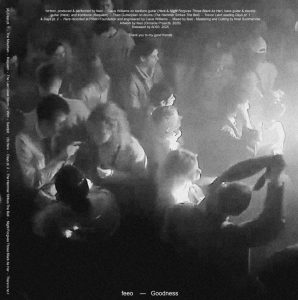GENRE: Pop/R&B
LABEL: Stones Throw
REVIEWED: 18 October, 2025
RATING: 8.5
Sudan Archives’ third album, The BPM, is a bracing, club-forward reinvention that pushes Brittney Parks’ long-standing blend of violin virtuosity and experimental pop into darker, more mechanical terrain. Where Natural Brown Prom Queen leaned into pastoral intimacy and maximalist production, The BPM trades some of that warmth for jagged drum machines, chopped vocals, and a deliberate sense of kinetic urgency — an album that wants you moving while quietly unspooling a thread of vulnerability beneath the beats.
The record arrives as an ostensible dance record but is emotionally ambidextrous: its first half often reads like a sweaty, stylish club set — tracks such as “THE NATURE OF POWER,” “MY TYPE,” and “A COMPUTER LOVE” are engineered to be immediate and propulsive — while the latter stretches toward reflective, bittersweet territory with pieces like “DAVID & GOLIATH” and the gentle closer “HEAVEN KNOWS.” The album’s structure favors momentum over prolonged exposition; songs slip into one another with the cheap-glamour urgency of house and industrial pop, which can make the listening experience feel continuous and, at moments, slightly claustrophobic in a productive way.
Parks’s violin — historically the emotional centerpiece of her music — is deployed here more as texture than soloist. That choice pays aesthetic dividends: the strings often surface as haunting motifs or dramatic punctuation, letting sparse, gritty production and Parks’s intimate, sometimes half-rapped vocals carry the core narrative weight. It’s a savvy shift — she proves she can build moods without putting the fiddle front-and-center on every chorus, which both reframes her sonic identity and broadens what a “Sudan Archives” track can do on a dancefloor.
Lyrically the album teeters between defiant swagger and real human unease. Songs like “DEAD” and “TOUCH ME” present characters sprinting through desire and dislocation; elsewhere Parks interrogates technology’s effects on intimacy and memory (“A COMPUTER LOVE”) and mourns the social spaces that have evaporated with time. Thematically, The BPM mines the friction between euphoria and exhaustion — seeking release through motion while cataloguing the small violences of modern life. Critics have seized on that tension as one of the album’s strengths, calling it a “dense, claustrophobic” portrait of life in motion.
Across the press cycle the response has been broadly favorable. Pitchfork awarded the album Best New Music, praising its emotional potency and dance-ready inventiveness; Metacritic’s early aggregation shows strong critic support and highlights the record’s daring hybrid of club sounds and compositional ambition. Independent reviews emphasize how The BPM is less polished but more immediate than Parks’s previous work — a deliberate aesthetic that sacrifices smoothness for electricity.
If there’s a critique, it’s that the album’s loose, momentum-first sequencing sometimes blunts individual song immediacy: a few tracks blur together in service of the whole, and not every fragment lands as a standalone single. But that trade-off feels intentional; Parks seems less interested in tidy pop hits than in creating an immersive, often messy portrait of someone using rhythm to survive and to celebrate.
Contextually, The BPM cements Sudan Archives’ evolution from DIY violin prodigy to a producer and conceptual artist unafraid to adopt alter-egos (the press rollout referenced a new persona, “Gadget Girl”) and to fold regional club sensibilities into her work. The album was released October 17, 2025, and she’s supporting it with a global tour that continues her move into larger, dance-oriented spaces.
The BPM is an adventurous, occasionally uneasy dance record — intimate where it needs to be, aggressive when it wants to be, and consistently inventively produced. It’s not always tidy, but it’s alive: a record that rewards multiple listens, especially when you let its friction and momentum do the emotional work for you.
Suggested listening highlights: “DEAD,” “THE NATURE OF POWER,” “A COMPUTER LOVE,” and “HEAVEN KNOWS.”




